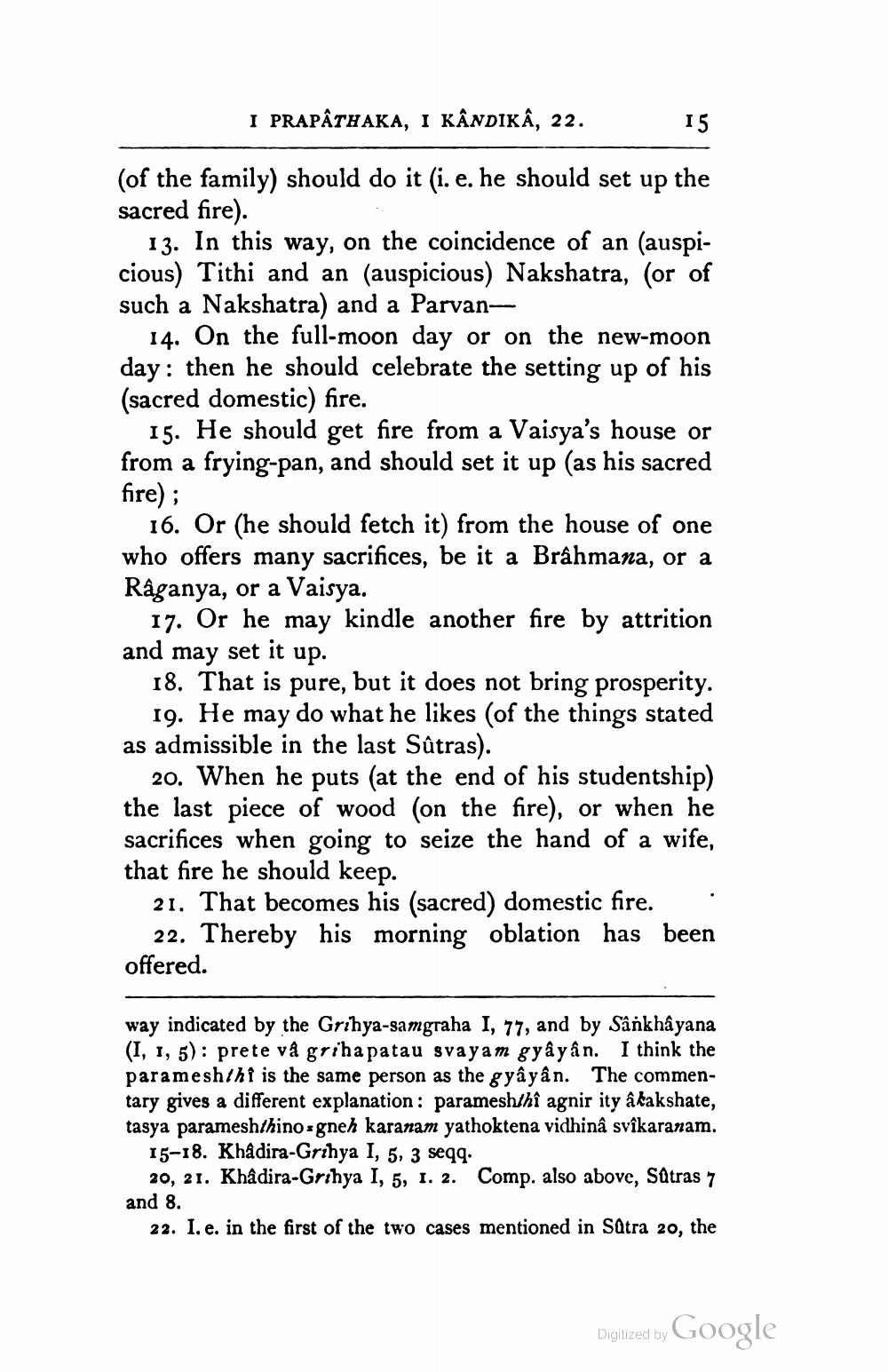________________
I PRAPATHAKA, I KÂNDIKÂ, 22.
15
(of the family) should do it (i. e. he should set up the sacred fire).
13. In this way, on the coincidence of an (auspicious) Tithi and an (auspicious) Nakshatra, (or of such a Nakshatra) and a Parvan
14. On the full-moon day or on the new-moon day: then he should celebrate the setting up of his (sacred domestic) fire.
15. He should get fire from a Vaisya's house or from a frying-pan, and should set it up (as his sacred
fire) ;
16. Or (he should fetch it) from the house of one who offers many sacrifices, be it a Brâhmana, or a Râganya, or a Vaisya.
17. Or he may kindle another fire by attrition and may set it up.
18. That is pure, but it does not bring prosperity.
19. He may do what he likes (of the things stated as admissible in the last Sûtras).
20. When he puts (at the end of his studentship) the last piece of wood (on the fire), or when he sacrifices when going to seize the hand of a wife, that fire he should keep.
21. That becomes his (sacred) domestic fire. .
22. Thereby his morning oblation has been offered.
way indicated by the Grihya-samgraha I, 77, and by Sânkhayana (I, I, 5): prete và griha patau svay am gyây ân. I think the parameshthi is the same person as the gyâyân. The commentary gives a different explanation: paramesh/hî agnir ity âkakshate, tasya parameshthinos gneh karanam yathoktena vidhinâ svîkaranam.
15-18. Khâdira-Grihya I, 5, 3 seqq.
20, 21. Khâdira-Grihya I, 5, 1. 2. Comp. also above, Satras 7 and 8.
22. I. e. in the first of the two cases mentioned in Sätra 20, the
Digilized by Google




